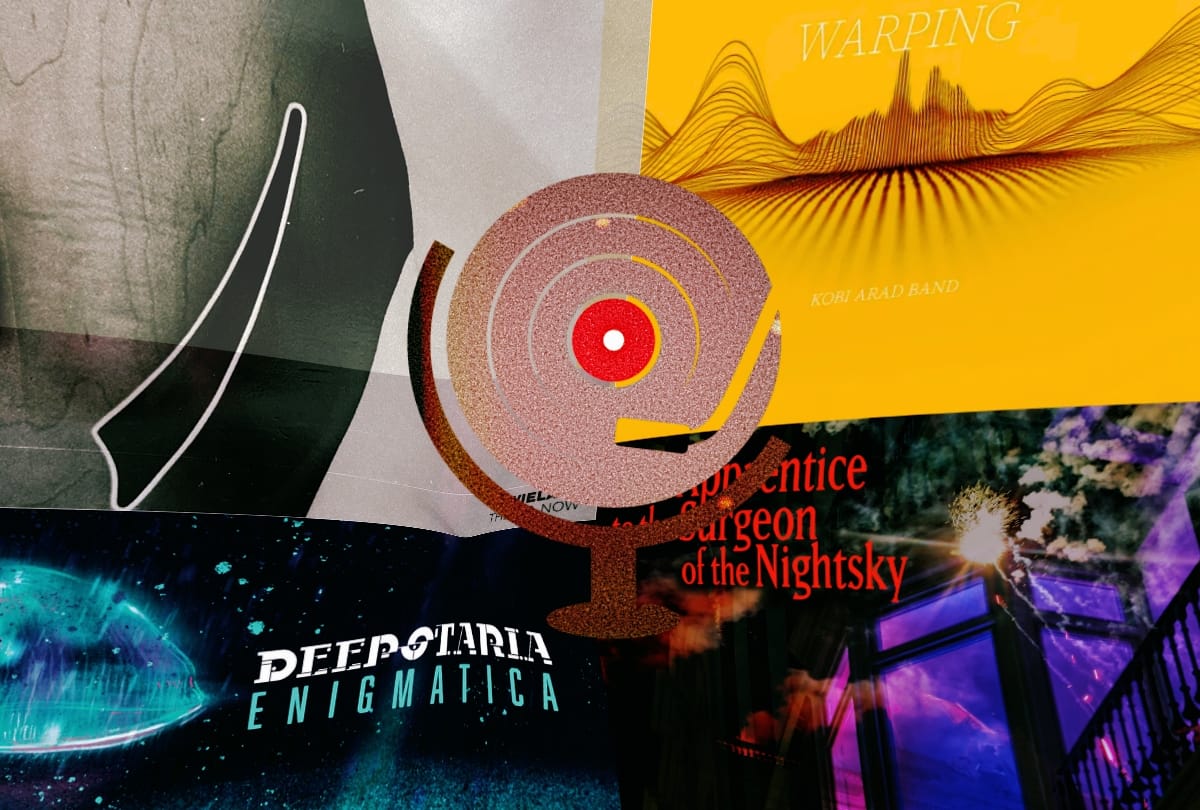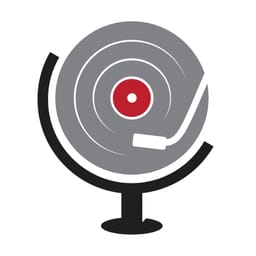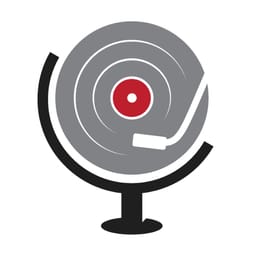Plummeting. That's the word that popped into my head as I wondered how to welcome you and us, your friends at The Tonearm, into 2025. We're plummeting into a new year with potentially wonderous and/or treacherous things ahead. There aren't any road signs telling us which way to go, and that's a little scary. (Our friend Ernie Smith has some ideas for calming nerves in this Tedium post.) But one thing's for certain—when things get a little out-of-control, overwhelming, or just too OMG WTF, it's always a great idea to take a detour into music. We here at The Tonearm feel that music's never been better, and this first Needle Drops installment of 2025 is an earful of exciting evidence.
Stay on a hopeful path, make art for fun, and always enjoy the music. Happy New Year!
Deepstaria Enigmatica - The Eternal Now is the Heart of a New Tomorrow

Memphis quintet Deepstaria Enigmatica's The Eternal Now Is the Heart of a New Tomorrow pushes against conventional free jazz boundaries. Recorded at Sam Phillips Recording Studio, this two-track album spans 43 minutes of improvisational music that draws from ambient textures, Miles Davis's electric period, and cosmic jazz.
The band—named after a rare jellyfish species discovered by Jacques Cousteau—features Chad Fowler on woodwinds and electronics, David Collins on guitar, Alex Greene handling keyboards, Africano Misterioso on bass, and Jon Scott Harrison on drums. Each musician brings a distinct musical background: Fowler collaborated with free jazz pioneers Frank Lowe and George Cartwright; Collins led the genre-bending Frog Squad; Greene studied electronic music with composer Judy Klein; Misterioso played guitar for Public Enemy under his other name Khari Wynn; and Harrison performs with groups ranging from jazz orchestras to soul ensembles.
The quintet recorded these extended pieces in September 2022, moving from meditative passages to explosive improvisations, incorporating elements of hard bop and folk melodies into their experimental framework. The group's collective improvisation often produces structured-sounding compositions despite their spontaneous nature, with these passages emerging from the formless din to root the music and the listener. It is a great start to the year for their label, the storied ESP-Disk. (LP)
Vincent Curson Smith & Blake Leyh - The Apprentice to The Surgeon of The Nightsky

Vincent Curson Smith and Blake Leyh are two musicians whose lives swirl around the specter of Jon Hassell. Vincent first heard—and became obsessed with—Jon Hassell coming out of his father's upstairs writing room when he was a single-digit age. He now has a degree in Jazz Trumpet from Trinity Laban Conservatoire of Music and Dance. In the mid-2000s, Blake posted a Jon Hassell track on his music blog. He received a polite 'cease and desist' from the man himself. Ten years later, Jon Hassell played on Blake's score for the film The Trials Of Spring.
In the late Jon Hassell's words, when applied to music, Fourth World is "a unified primitive/futuristic sound combining features of world ethnic styles with advanced electronic techniques." It's music from an imaginary place drawn from multiple existing places. The term gained prominence as part of the titles of a series of albums recorded with and without Brian Eno but was never intended to remain relegated to titles. Blake understands Fourth World as a genre that other musicians can address, implement, and expand upon.
Vincent and Blake's album, The Apprentice to The Surgeon of The Nightsky, doesn't shirk from its debt to Jon Hassell, nor does it need to. The title itself is a pronounced nod to Jon Hassell's 1987 album The Surgeon of the Nightsky Restores Dead Things. And Blake refers to the album—part reverently and part cheekily, I think—as 'Fourth World Volume XVII.' It's bold, but, as I suggested, Jon Hassell is inside the lives of these two music-makers. And what music this is!
The duo enlisted fellow N to The Power members Tony Jarvis and Bruno Coon, as well as Paul Urmson on Chapman Stick, to complete the album's textures. The musicians' interplay is measured and performed economically—the sparseness of the work only adds to a feeling of foreign space. Though Vincent's trumpet, processed and not, is at the forefront, the balance of his accompanists wraps the horn lines in a shimmery and essential gauze. It's difficult to highlight a single track as the album, while not 'samey' in the least, progresses as a whole like a nighttime exploration of abandoned city streets. It will also be difficult to listen to this album without thinking of Jon Hassell—and that's the point. This homage is cadence, a spoken language that extends outward to a remembered place accurately described as the Fourth World. (MD)
Kobi Arad - Warping
Israeli pianist Kobi Arad's album Warping uses jazz to explore Kabbalah—Jewish mystical teachings that find deeper meanings about the nature of God in sacred texts like the Torah. The album features Arad on piano with bassist Lonnie Plaxico and drummer Raymond McNaught.
Arad became the first musician to earn a doctorate in Third Stream music at New England Conservatory. The term "Third Stream" was coined by composer and French horn player Gunther Schuller in 1957 to describe music that combines classical composition with jazz improvisation. As president of the Conservatory from 1967-1977, Schuller established Third Stream as a formal area of study, breaking down traditional barriers between classical and jazz traditions, and Arad's work extends this legacy with compositions that are brilliant examples of the Third Stream in action.
The album's twelve tracks—including "Weave," "Unfold," and "Resonate"—use harmonic structures to create what Arad calls "hyperdimensional soundscapes." The tracks 'Binary' and 'Levitate' bring a Fender Rhodes into the mix, expanding the palette nicely. Throughout the recording, the trio moves fluidly between structured composition and free improvisation, with particular attention to the spaces between notes where Arad says the mystical elements emerge. (LP)
Movieland - Then & Now

The repeatedly maligned and then rescued genre term 'shoegaze' is an unmistakably British invention—name a shoegaze band, and there's little doubt you'll hit upon one of the staple acts from Old Blighty. Still, there's a story waiting to be told about shoegaze's impact on the early '90s North American indie scene. Any city with 'alternative music' bands had at least a couple trying to sound a little like Ride, Slowdive, or (in my band's case—don't laugh) Chapterhouse. The North American version was a little more rockin'—grunge was happening at the same time—but never really had its breakout shoegaze combo taking over 120 Minutes. The Swirlies, Drop Nineteens, Velocity Girl, and Medicine come to mind as solid contenders, but most of you probably don't remember them. Nonetheless, reissues, demos, and lost albums continue to pop up, culled from this continent's fertile, guitar pedal-powered era.
One of those bands was Vancouver's Movieland. The trio was led by singer-guitarist Alan D. Boyd, whose allegiance was broadcasted by his teasing nickname, 'My Bloody Alantine.' Launching in 1991, the band gained a die-hard fanbase and gigged aplenty, recording accomplished demos on eight tracks from their home, dubbed 'The Mansion.' The band only lasted a few years, perhaps defeated by an A&R scout enthusiastically attending a gig only to sign the opening act. By the start of 1994, Movieland's members went separate ways and to separate projects. But the tapes remain as the band's indie-rock evidence.
Enter Then & Now, the first release from 604 Decades, an archival imprint within Vancouver's venerated 604 Group. 604 Decades aims to reissue forgotten treasures from British Columbia's indie music past. (Side note: It would be fantastic if every city had an archival imprint like this, documenting the foundational music that never made it outside the local area code.) Then & Now collects songs from these early tapes, and, to Alan's credit, they hold up well sonically and musically. The influences are easy to spot—there are prominent stylistic nods, unintentional or not, to Ride and Spacemen 3—but the release fits right in with that North American brand of the shoegaze sound. "Build a Dream" and "She’s a Mountain" are the last songs recorded, and they show Movieland getting more expansive and noisier and shedding some of the punch that identified these bands on this side of the Atlantic. My bet is on the feedbacky and Stone Roses vibing "I Relate." The tune is presented here in equally exceptional original and 'Soft' mixes and could have been a no-brainer hit for one of those more popular bands from the Isles. Another time, another place—and, as rumors of a Movieland resurrection are floating around, perhaps the time is now rather than then. (MD)
Spotlight On - 10 Most Listened to Episodes of 2024
The Spotlight On podcast's 10 most listened-to episodes of 2024 tell us a lot about our listeners: you are drawn to conversations about musical innovation and cultural critique. You vote with your ears. Doing so encourages us to have deep discussions with our guests, examining the relationship between art, technology, and society.
How does this manifest?
On our 200th episode, R.U. Sirius looks back at MONDO 2000's tech cultural commentary while addressing current questions about AI and digital society. Andy McCluskey talks about OMD's political themes in their most recent music, and entrepreneur Brad Mindich examines how archives preserve cultural memory. The episodes with David J and Hainbach highlight different approaches to electronic music—from Bauhaus's gothic post-punk to Hainbach's soundscapes built from vintage industrial equipment.
Jazz and creative music musicians are mainstays throughout the list: pianist Bill Anschell brings wit to his compositions, and Josh Johnson processes his saxophone through modern electronics. Swedish musician Daniel Ögren, Danish organist Anders Koppel, and touch guitarist Markus Reuter discuss bodies of work that cross geographic and sonic borders. Our conversations focus on process and philosophy rather than promotion, creating audio documents of artists - and others - discussing their work with engagement and depth.
Thank you for being with us for another year of exploration. We look forward to bringing you much, much more. (LP)
More Recommendations from The Tonearm:










Comments